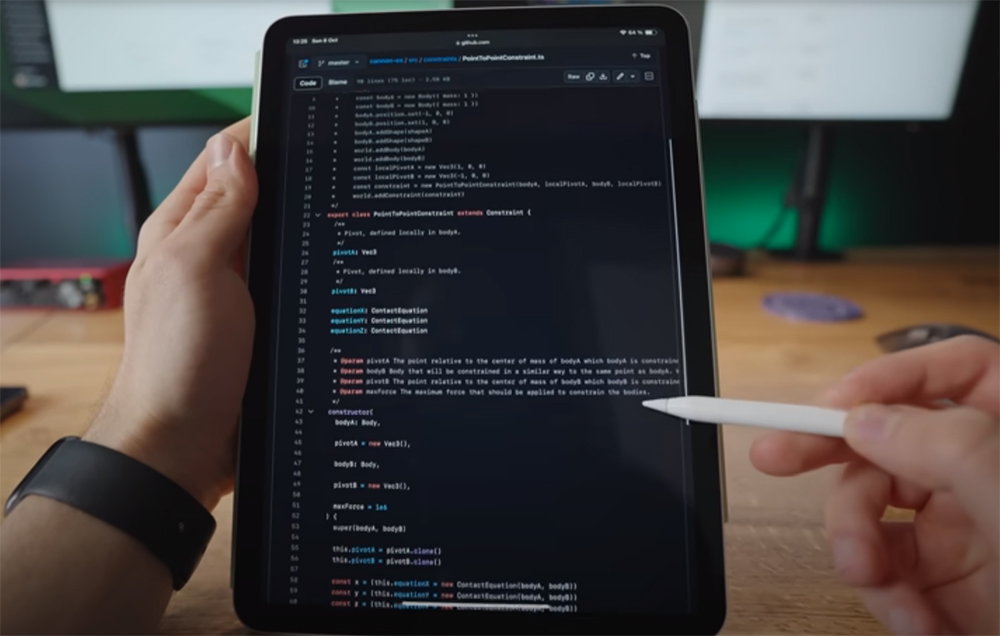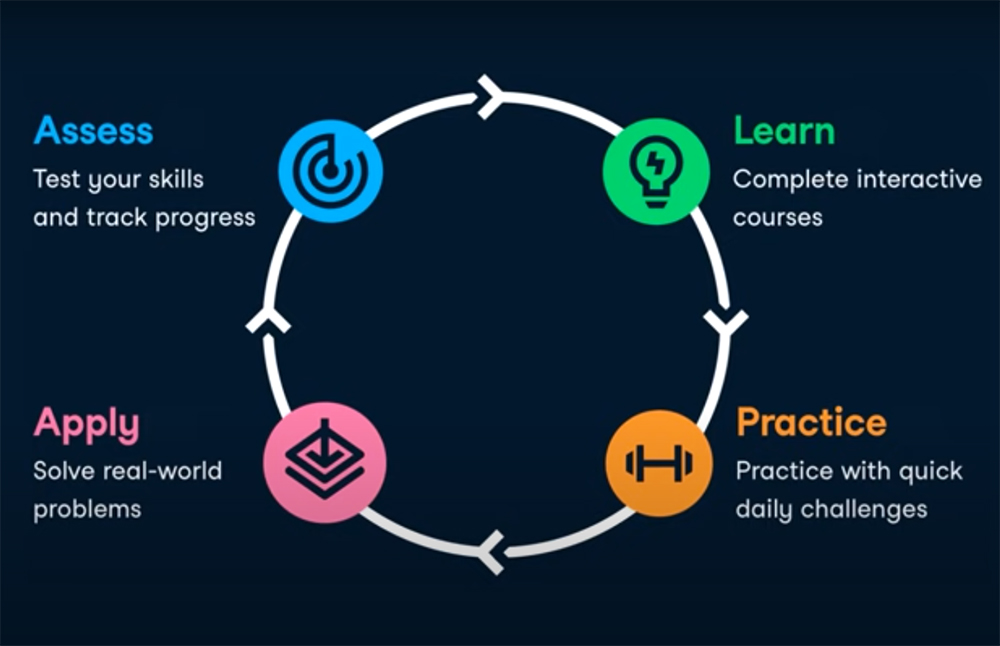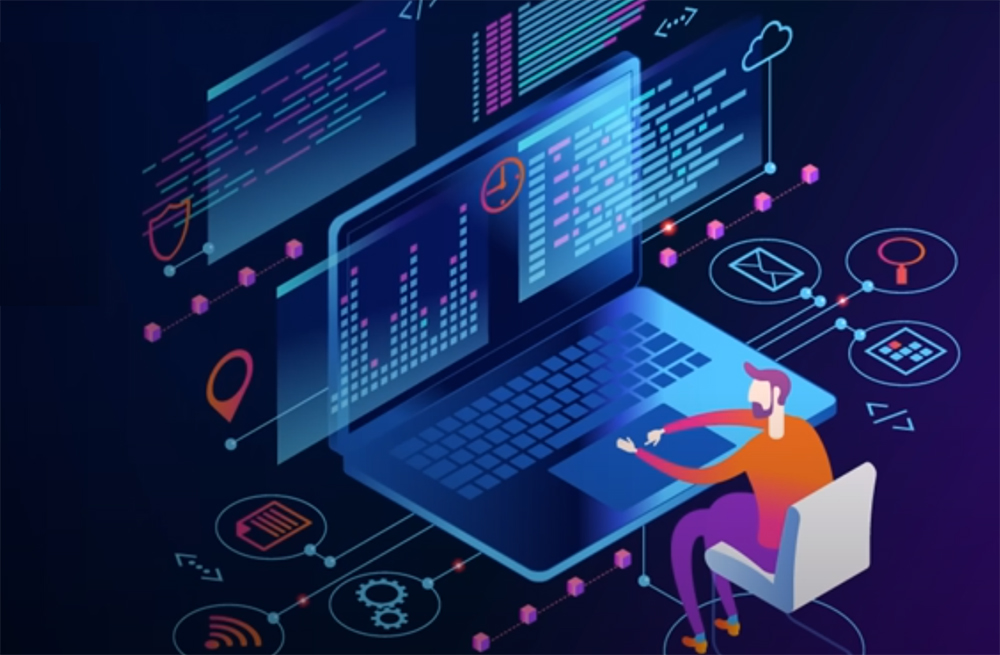While these titles may seem interchangeable, they represent distinct career paths with unique responsibilities and skill sets. This article delves into the nuanced differences between Programmer Analysts and Software Engineers, shedding light on their respective roles, primary functions, and the crucial distinctions in terms of education, expertise, and the scope of their contributions to the world of software development.
By the end of this exploration, readers will gain a comprehensive understanding of these two dynamic professions, empowering them to make informed decisions about their own career aspirations or recruitment choices in the field of technology.
Who Is A Programmer Analyst:
Skills
They possess a diverse skill set, encompassing both programming and analytical abilities. Key skills include:

- Programming Languages: Proficiency in languages like Java, C++, Python, and more, depending on the specific job requirements;
- Problem-Solving: Strong analytical and problem-solving skills to assess software needs and develop effective solutions;
- Database Management: Knowledge of database systems and SQL for efficient data retrieval and storage;
- Documentation: Effective documentation skills to record code, project requirements, and user manuals;
- Communication: Excellent communication skills to collaborate with stakeholders and translate technical jargon into plain language;
Education
Typically, a bachelor’s degree in computer science, information technology, or a related field is the foundation for a Programmer Analyst’s career. Advanced degrees can further enhance one’s prospects, particularly in competitive job markets. Continuous learning and staying up-to-date with the latest programming languages and tools are essential to thrive in this role.
Common Responsibilities
Programmer Analysts are versatile professionals who often find themselves in a variety of roles and responsibilities. These can include [1]:
- Coding: Writing, testing, and maintaining code for software applications;
- Requirements Analysis: Collaborating with stakeholders to understand their software needs;
- System Integration: Ensuring different software components work seamlessly together;
- Software Testing: Identifying and fixing bugs and errors in the software;
- Documentation: Creating user manuals, technical documentation, and code comments;
- User Support: Assisting end-users with software-related issues;
Common Types of Job
Programmer Analysts can find employment in various industries and job roles, including:
- Application Developer: Focusing on designing and creating software applications for specific purposes;
- Systems Analyst: Analyzing business processes and designing solutions to improve efficiency;
- Database Programmer: Managing and optimizing databases for efficient data storage and retrieval;
- Quality Assurance Analyst: Ensuring software quality by testing and identifying defects;
- Technical Support Specialist: Providing technical assistance to end-users or internal teams;
Pros of Being a Programmer Analyst:
- Diverse Skill Set: Versatility in skills allows for a wide range of job opportunities;
- Problem Solving: The role involves creative problem-solving, making it intellectually stimulating;
- Job Security: High demand for IT professionals ensures job stability;
- Competitive Salary: Competitive compensation in recognition of the specialized skill set;
Cons of Being a Programmer Analyst:
- Intensive Workload: Tight deadlines and debugging can lead to long working hours;
- Continuous Learning: The field evolves rapidly, requiring constant skill updates;
- Sedentary Work: Extended periods of sitting and screen time can impact health;
Who Is A Software Engineer:
Skills

Key skills include:
- Programming Expertise: Proficiency in programming languages relevant to the software stack being developed;
- Algorithmic Thinking: Strong grasp of algorithms and data structures to optimize software performance.
- Software Architecture: Designing the overall structure of software systems;
- Version Control: Expertise in version control tools like Git for collaboration;
- Testing and Debugging: Implementing thorough testing and debugging to ensure software quality;
Education
Common Responsibilities
Software Engineers are responsible for the core design and development of software systems. Their typical responsibilities include:
- Software Design: Creating the architecture and structure of the software;
- Coding: Developing software applications and components;
- Testing: Rigorous testing and debugging to ensure software quality;
- Maintenance: Updating and maintaining software to meet evolving requirements;
- Collaboration: Working closely with cross-functional teams, including UI/UX designers and product managers;
- Performance Optimization: Optimizing software for efficiency and scalability [2];
Common Types of Job
Software Engineers can specialize in various areas and hold positions such as:
- Backend Developer: Focusing on server-side development and database management;
- Frontend Developer: Dealing with the user interface and client-side code;
- Full-Stack Developer: Proficient in both frontend and backend development;
- Software Architect: Designing high-level software structures and making technology decisions;
- DevOps Engineer: Focusing on automation, deployment, and infrastructure management;
Pros of Being a Software Engineer:
- Highly Specialized: Specialization in software development leads to rewarding job opportunities;
- Innovation: Involvement in cutting-edge technology and product development;
- Competitive Salary: Software Engineers often command high salaries;
- Problem Solving: Regularly tackling complex problems can be intellectually stimulating;
Cons of Being a Software Engineer:
- Intensive Workload: Tight project schedules can lead to long work hours and high pressure;
- Continuous Learning: Ongoing skill development is essential to remain competitive;
- Sedentary Work: Extended hours at a computer desk may have health implications;
Programmer Analysts vs. Software Engineers – Key Differences:
Required Skill Sets
1) Programmer Analysts:

- Diverse Skills: Programmer Analysts possess a versatile skill set, combining programming proficiency with analytical thinking. They are adept at languages such as Java, Python, and C++, and their analytical skills enable them to identify and address complex software-related issues;
- Problem Solving: Strong problem-solving capabilities are a hallmark of Programmer Analysts. They must analyze business requirements, understand user needs, and design practical software solutions;
- Database Management: Proficiency in database systems and SQL is crucial for efficient data storage and retrieval;
- Documentation: Effective documentation is essential for recording code, project requirements, and user manuals;
- Communication: Good communication skills are required to collaborate with stakeholders, explain technical concepts, and facilitate user support;
2) Software Engineers:
- Specialized Expertise: Software Engineers specialize in software architecture and engineering principles. Their core competency is in programming languages and software design;
- Algorithmic Thinking: They have a strong understanding of algorithms and data structures to optimize software performance and efficiency;
- Software Architecture: Software Engineers focus on creating the overall structure and design of complex software systems;
- Version Control: Proficiency in version control tools like Git is critical for collaboration;
- Testing and Debugging: Rigorous testing and debugging practices ensure software quality and reliability;
Educational Background and Certifications
1) Programmer Analysts:
- Typically hold a bachelor’s degree in computer science, information technology, or a related field.
- May opt for advanced degrees or certifications to enhance their qualifications and competitiveness in the job market.
2) Software Engineers:
- Usually have a bachelor’s degree in computer science, software engineering, or a related field;
- Often pursue advanced degrees or certifications in specialized areas of software engineering;
- May acquire certifications such as Certified Software Development Professional (CSDP) or AWS Certified DevOps Engineer, depending on their chosen specialization;
Career Growth and Advancement
1) Programmer Analysts:
- Career paths may include roles like Application Developer, Systems Analyst, Database Programmer, Quality Assurance Analyst, or Technical Support Specialist;
- Opportunities for advancement typically involve taking on more senior or lead roles and possibly moving into project management;

2) Software Engineers:
- Can specialize in various areas, including Backend Developer, Frontend Developer, Full-Stack Developer, Software Architect, or DevOps Engineer;
- Career growth often involves progressing into higher-level positions such as Senior Software Engineer, Software Development Manager, or Chief Technology Officer (CTO);
Salary and Compensation
1) Programmer Analysts:
- Experienced Programmer Analysts can earn higher salaries, often surpassing the six-figure mark in some regions;
2) Software Engineers:
- Experienced Software Engineers often enjoy significant salary growth, with the potential to earn well into the six-figure range, and even more for senior roles [3];
Similarities Between Programmer Analyst and Software Engineer
Despite their distinct roles and responsibilities, Programmer Analysts and Software Engineers share several commonalities, reflecting the interconnected nature of the software development field.
These similarities highlight the foundational aspects that both professions rely on:

- Programming Skills: Both Programmer Analysts and Software Engineers are well-versed in various programming languages, which are fundamental to their work. Whether it’s Java, C++, Python, or another language, the ability to write, debug, and maintain code is a shared core skill;
- Problem-Solving: Both roles require strong problem-solving abilities. They need to analyze complex issues, identify inefficiencies in software, and design effective solutions. Problem-solving is an integral part of their daily work, whether it involves fixing a bug or optimizing a software component;
- Software Development Life Cycle: Both Programmer Analysts and Software Engineers are intimately familiar with the software development life cycle (SDLC). They understand the stages of planning, designing, coding, testing, and maintenance. This knowledge guides their work and ensures that software projects are completed successfully;
- Collaboration: Collaboration with other team members and stakeholders is a common aspect of both roles. Effective communication and teamwork are essential to gather requirements, explain technical concepts to non-technical individuals, and ensure that software aligns with business objectives;
- Continuous Learning: The technology landscape is constantly evolving. Both Programmer Analysts and Software Engineers must stay up-to-date with the latest programming languages, tools, and methodologies. They are committed to continuous learning to remain competitive and relevant in their respective fields;
- Software Quality: Both professions share a commitment to delivering high-quality software. Whether it’s a Programmer Analyst testing for bugs or a Software Engineer ensuring the robustness of an entire system, the ultimate goal is to create reliable and efficient software that meets user requirements;
- Documentation: Effective documentation is vital for both roles. Programmer Analysts document code, project requirements, and user manuals, while Software Engineers create architectural and design documents. Clear documentation is crucial for team collaboration and future maintenance;
- User-Centric Approach: Both roles consider the end-users’ needs and experiences. Programmer Analysts aim to develop user-friendly software that meets specific requirements, while Software Engineers focus on creating software with a user-centric design that provides a seamless and enjoyable user experience;
- Adaptability: Given the rapidly changing technology landscape, adaptability is a shared characteristic. Both Programmer Analysts and Software Engineers must be flexible in responding to evolving project requirements, new tools, and shifting priorities [4];
- Professional Ethics: Both professions adhere to professional codes of ethics and best practices. They maintain the confidentiality of sensitive information, ensure data security, and act in the best interests of their clients or organizations;
Tips for Choosing the Career Between Programmer Analyst vs. Software Engineer
Choosing between a career as a Programmer Analyst or a Software Engineer is a significant decision, and it’s essential to make an informed choice that aligns with your interests, skills, and long-term career goals.
Here are some valuable tips to help you decide which path is the right fit for you:

Self-Assessment: Begin by evaluating your interests, strengths, and preferences. Consider what aspects of software development excite you the most. Are you more inclined towards problem-solving, coding, or software design? Your natural inclinations can provide valuable insights.
Research Both Roles: Thoroughly research the roles of Programmer Analysts and Software Engineers. Understand the specific responsibilities, skills, and day-to-day tasks associated with each job. Consider job descriptions, industry expectations, and required qualifications.
Educational Background: Examine your educational background and long-term goals. If you already possess a degree in a related field, assess how it aligns with the requirements of each role. Determine whether additional education or certifications may be necessary to pursue your chosen career path.
Skill Set Analysis: Reflect on your current skill set and your willingness to acquire new skills. Programmer Analysts need a diverse skill set that combines programming and analytical abilities. In contrast, Software Engineers require specialized expertise in software architecture and engineering principles. Assess which set of skills you are more inclined to develop.
Specialization Consideration: Think about whether you prefer a specialized or versatile role. Software Engineers often have the opportunity to specialize in areas like front-end or back-end development, while Programmer Analysts typically have a broader range of responsibilities. Decide if you are drawn to specialization or prefer a more versatile role.
Career Goals: Define your long-term career goals. Consider where you see yourself in five, ten, or twenty years. Programmer Analysts may transition into roles like Systems Analyst, Database Administrator, or Quality Assurance Analyst. Software Engineers can progress into senior engineering positions, architecture roles, or even management positions. Your vision for your career path will impact your decision.
Industry and Market Trends: Stay informed about current industry trends and market demands. Research the job market in your region and assess the demand for Programmer Analysts and Software Engineers. Are there more opportunities in one field than the other? Market demand can influence your decision.
Internships and Experience: If possible, gain practical experience through internships or entry-level positions in both fields. Hands-on experience can provide invaluable insights and help you make an informed decision based on real-world exposure.
Networking: Connect with professionals in both fields to gain insights into their experiences and the day-to-day challenges they face. Attend industry conferences, join online forums, and network with people in the roles you’re considering.
Mentorship: Seek mentorship from experienced professionals in the field. A mentor can offer guidance, answer questions, and provide valuable career advice to help you make an informed decision.
Consider Hybrid Roles: Some organizations offer roles that blend elements of both Programmer Analysts and Software Engineers. These hybrid positions may be a good fit if you enjoy aspects of both roles and want to explore a combination of responsibilities.

Personal Growth and Job Satisfaction: Ultimately, prioritize your personal growth and job satisfaction. Choose a career path that aligns with your passion and allows you to thrive and enjoy your work.
FAQ:
-
Can a programmer analyst become a software engineer?
Yes, a Programmer Analyst can transition into a career as a Software Engineer with the right education, training, and experience. Many of the skills and programming knowledge acquired as a Programmer Analyst are transferable to a software engineering role. Additional education and specialization may be necessary to align with the specific demands of a software engineering position.
-
Is programmer analyst a good job?
Whether a Programmer Analyst job is considered good or not depends on individual preferences and career goals. It can be a fulfilling and stable job with good earning potential. However, job satisfaction varies based on factors such as the company, industry, location, and personal interests.
-
What is a programmer analyst also known as?
Programmer Analysts may also be known as Systems Analysts, Application Developers, or Software Analysts, depending on their specific roles and responsibilities.
-
Does a software analyst do coding?
Yes, Software Analysts often engage in coding as part of their responsibilities. They analyze software requirements, design solutions, and implement code to develop or modify software applications. However, the extent of coding may vary based on the specific job and organization.
-
Is a software analyst an engineer?
While Software Analysts may have a role in software development, they are typically not referred to as software engineers. Software Engineers typically have more specialized roles focused on designing and building software systems from an engineering perspective.
-
What qualifications do I need to be a Programmer Analyst?
To become a Programmer Analyst, a bachelor’s degree in computer science, information technology, or a related field is typically required. Additional qualifications and certifications can enhance your prospects in this role.
-
What is the next position after a Programmer Analyst?
The next position after a Programmer Analyst often depends on career goals and skill development. Possible options include Senior Programmer Analyst, Systems Analyst, Business Analyst, Database Administrator, or transitioning to roles like Software Engineer or Project Manager.
-
How long does it take to become a Programmer Analyst?
It typically takes around four years to earn a bachelor’s degree in computer science or a related field. Some individuals may spend additional time gaining experience or pursuing advanced degrees, so the duration can vary.
-
Who does a Programmer Analyst report to?
A Programmer Analyst typically reports to a senior team member, project manager, or an IT manager, depending on the organization’s structure. They work closely with other team members, stakeholders, and managers to meet project goals.
-
What is Programmer Analyst training?
Programmer Analyst training encompasses education in programming languages, problem-solving skills, and analytical thinking. It often includes coursework in computer science, database management, and software development methodologies.
-
What does a Programmer Analyst do in Amazon?
At Amazon, a Programmer Analyst may work on various software development projects. Responsibilities could include coding, testing, system analysis, and database management. The specific role and projects can vary within Amazon’s diverse tech departments.
-
What is a junior Programmer Analyst?
A junior Programmer Analyst is an entry-level position in which individuals are in the early stages of their career. They work under the guidance of senior team members and are responsible for coding, testing, and assisting with software development projects.
-
Is a software engineer and data analyst the same?
No, Software Engineers and Data Analysts have distinct roles. Software Engineers focus on developing software applications, while Data Analysts specialize in analyzing and interpreting data to support decision-making.
-
Is a technology analyst the same as a software engineer?
Technology Analysts and Software Engineers have different roles. Technology Analysts may focus on evaluating and recommending technology solutions, while Software Engineers are involved in designing and building software applications.
-
Is a Programmer Analyst a web developer?
A Programmer Analyst can have responsibilities that overlap with web development, but the roles are not synonymous. Web development is a specialized field that primarily deals with creating and maintaining websites and web applications.
-
Can a Programmer Analyst become a data scientist?
Transitioning from a Programmer Analyst to a data scientist is possible with additional education and training in data science. Data science roles typically require expertise in data analysis, machine learning, and statistics.
-
Who earns more – software engineer or AI engineer?
Earnings can vary based on factors such as location, experience, and organization. AI Engineers may earn more in some cases due to the specialized skills required for artificial intelligence development. However, software engineers can also have high earning potential.
-
What skills do Programmer Analyst trainees need?
Trainees typically need a foundation in programming languages, analytical thinking, problem-solving, and database management. Communication skills, teamwork, and the ability to adapt to new technologies are also valuable.
-
Is Programmer Analyst a specialty occupation?
Programmer Analyst is considered a specialized occupation within the broader field of software development. It requires a specific skill set and knowledge, making it a specialty role.
-
Can a Programmer Analyst become a business analyst?
Yes, a Programmer Analyst can transition into a business analyst role with additional training and experience. Business Analysts focus on analyzing business processes and requirements to improve efficiency and may require a different set of skills compared to Programmer Analysts.
-
Can a Programmer Analyst become a software developer?
Yes, a Programmer Analyst can become a software developer by acquiring additional programming skills and transitioning into roles that involve more extensive software development responsibilities.
Useful Video: How to Choose Between a Career in Data Analytics vs Software Engineering
References:
- https://www.bloomtech.com/article/programmer-analysts-vs-software-engineers-what-differentiates-them
- https://careerkarma.com/blog/software-engineer-vs-programmer/
- https://savvyprogrammer.io/programmer-analyst-vs-software-engineer/
- https://girltechblog.com/programmer-analyst-or-software-developer-which-is-better/








Leave a Review